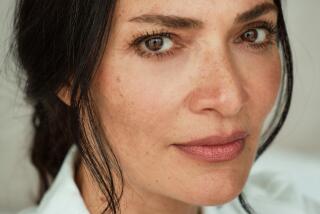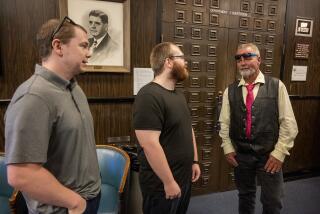SAN DIEGO COUNTY PERSPECTIVE : Allowing Hate to Lead to Murder
- Share via
There is little about the personal lives of Daniel and Betty Broderick that San Diego and the nation don’t know.
Through Betty Broderick’s two murder trials, we learned about his affair, how much money the prominent attorney made, his drinking. We heard about her abortions, her relationship with her parents, her spending habits.
We know that money seemed to rule both their lives. He could not be the husband she wanted until he was rich. She could not maintain her lifestyle on $16,100 a month after they separated.
We know what all-consuming hate did to them during their divorce. Her screaming rage, threats and obscene language. His retaliation: docking her support checks. We saw how children can be used as instruments of hate and revenge. He would leave them on her doorstep when he knew she was not home. She filled them with the venom she meant for their new stepmother, Linda Kolkena Broderick.
It was a hate that culminated in Betty killing Daniel and Linda. On Tuesday, a jury found Betty guilty of two counts of second-degree murder. Neither prosecution nor defense got what it wanted with that verdict, but justice was probably served.
A verdict of manslaughter would have ignored the facts. She had talked for years about killing the man who had betrayed her. She had taken the key to his house from her daughter’s purse and entered his house in the middle of the night with a pistol. This was no impromptu drama. No matter how much she felt scorned by the man she married so young, regardless of whether he used his legal prowess and connections to her disadvantage during the divorce, killing him and his new wife was not an act that could be viewed as manslaughter.
But something differentiated this killing from scores of other first-degree murders that come to trial every year. Daniel and Betty Broderick fed each other’s hate, each taking revenge when detachment might have cooled things.
It was a divorce that touched deep chords in many people, particularly women whose husbands had left them for younger partners. They knew the hate that drove her. The hate that many, if not most, spouses feel at some time during a divorce, especially when children are involved. But most people move past that hate.
If anything is to be learned from the divorce of Betty and Daniel Broderick and the deaths of Daniel and Linda Broderick, it’s the necessity of rising above hate, even in hateful situations.
This verdict reinforces the personal responsibility to do that.
More to Read
Sign up for Essential California
The most important California stories and recommendations in your inbox every morning.
You may occasionally receive promotional content from the Los Angeles Times.













